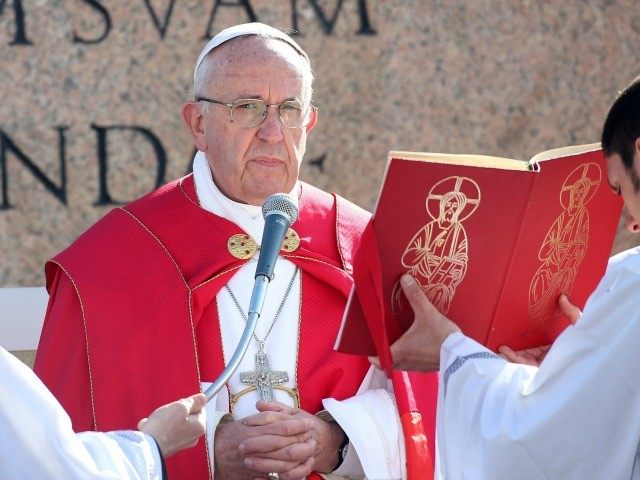Leaving aside traditional Catholic teaching, Pope Francis said Tuesday that capital punishment is “inadmissible” and that the right to life is absolute and applies equally to the innocent and the guilty.
Francis said that since the death penalty is closed to hope, it is “torture, not punishment.”
In a video message to an anti-death penalty congress in Norway, Francis declared: “Today the death penalty is inadmissible, no matter how grave the crime committed. It is an affront to the inviolability of life and the dignity of the human person, which contradicts God’s plan for man, society and merciful justice.”
Capital punishment, he continued, “does not render justice for the victims, but encourages vengeance. The commandment ‘Thou shalt ot kill’ has an absolute value and applies both to the innocent and to the guilty.”
Last February, the Pope called for an “international consensus” for the abolition of capital punishment as a preparation for an international conference entitled “For a world without the death penalty,” which took place in Rome.
“I hope that the symposium would give renewed impetus to the commitment to the abolition of capital punishment,” Francis said. He also said that a shift in public opinion toward opposition to the death penalty even as a legitimate means of defense of society is “a sign of hope.”
At the time, the Pope framed his appeal in the context of the Jubilee Year of Mercy, saying that this period of grace “is a propitious occasion to promote in the world ever more mature forms of respect for life and the dignity of every person.”
For many centuries the Catholic Church has accepted the right of legitimate authority to have recourse to the death penalty in the case of certain heinous crimes, but beginning with the pontificate of Saint Pope John Paul II, has progressively narrowed the conditions under which it can be legitimately applied.
In 1995, John Paul published his encyclical letter Evangelium Vitae (The Gospel of Life), which marked a watershed in Catholic debate on this issue, placing the problem of the death penalty in the context of legitimate defense. John Paul declared that recourse to the death penalty should be limited to “cases of absolute necessity: in other words, when it would not be possible otherwise to defend society.”
The Pope also stated that because of steady improvements in the penal system, “such cases are very rare, if not practically non-existent” in the contemporary world.
The Catechism of the Catholic Church was adjusted to include John Paul’s doctrine, and teaches that capital punishment should always be employed as a last resort.
“If bloodless means are sufficient to defend human lives against an aggressor and to protect public order and the safety of persons, public authority must limit itself to such means, because they better correspond to the concrete conditions of the common good and are more in conformity to the dignity of the human person.” (no. 2267)
In 2004, however, Cardinal Joseph Ratzinger—the future Pope Benedict XVI—stated that a faithful Catholic could disagree with the Pope regarding the application of capital punishment, since it does not represent a moral absolute.
While the Church exhorts civil authorities “to exercise discretion and mercy in imposing punishment on criminals,” the Cardinal wrote, “it may still be permissible” to have recourse to capital punishment.
“There may be a legitimate diversity of opinion even among Catholics about waging war and applying the death penalty,” he said, whereas this is not true “with regard to abortion and euthanasia,” which are moral absolutes.
Follow Thomas D. Williams on Twitter Follow @tdwilliamsrome

COMMENTS
Please let us know if you're having issues with commenting.